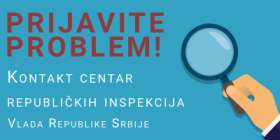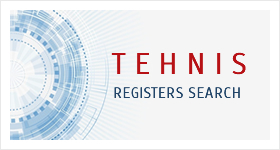Standardization
Serbian standards and related documents shall be adopted and published in accordance with the Law on Standardization and rules of the Institute, which are in compliance with the rules of international and European standardization organizations, as well as with the Code of Good Practice for the Preparation, Adoption and implementation of standards under the Agreement on Technical Barriers to Trade of the World trade Organization.
Standards are an important instrument for meeting the basic requirements of European technical legislation, which is a condition for export of Serbian products to the EU market, which is why all European standards must be taken as Serbian. The harmonized technical legislation is the basis of the free movement of goods, which is one of the four freedoms that the EU single marketbased on.
The main objectives of harmonization of technical legislation and building appropriate national technical infrastructure in the EU member states are product safety, protection of citizens' health and their safety at work, environmental protection, consumer protection and, in general, the elimination of other risks, which is a significant achievement of the EU. However, no less important objective of the conformity is improving the competitive ability of domestic industry in order to equal participation in international trade of goods and services to the European and world market.
With the entry into force of the new Law on Standardization ("RS Official Gazette", No. 36/09), conditions for faster and more efficient adoption of European standards have been provided. The new law clearly defines the difference between "general standardization" and so-called “branch standardization". The Law regulates the general standardization, which includes the widest range of users, but no branch standards that apply in specific areas (rail, air and river transport, defense, etc.)
The new law abolished the mandatory application of more than 8000 standards, thus fulfilling one of the basic requirements of the TBT Agreement of the World Trade Organization - the principle of voluntary standardization. The law also regulates the conformity assessment with standards. Having in mind that the usage of standards is voluntary, and the procedure for conformity assessment with standards is different from the conformityassessmentprocedures withthe technical regulations.
Within its competence, the Ministry of Economy, coordinates activities for identification the needs of the public authorities in order to adopt of European standards in Serbian standardization, in the context of their legislative activities. With the aim of defining the annual plans for the adoption of Serbian standards and related documents Ministry coordinates activities for preparations the annual work programs of the Institute and supervises the work of the Institute, in accordance with Article 20 of the Law on Standardization.
With establishing the national policies and development strategies of standardization, the strategic interests of all stakeholders in Serbia (economy, scientific and educational Institutions,other ministries and other state administration bodies, NGOs and citizens) are taken into account.
The Institute has implemented the European and international standards, adopts them as Serbian standards and so far ISS has beenadopted over 85% of all European standards.










